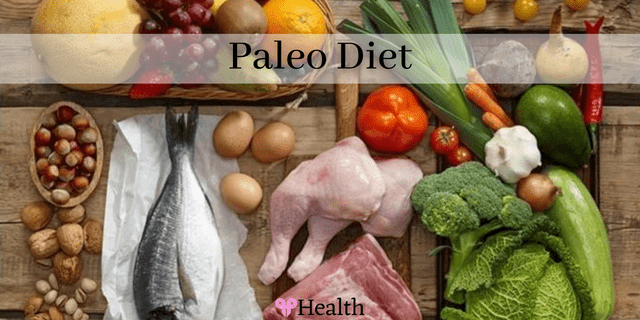The Pros and Cons of the Paleo Diet
Pros and Cons of the Paleo Diet
The Paleo Diet has gained immense popularity in recent years as a way to eat like our hunter-gatherer ancestors.
Proponents of the diet believe that it can lead to improved health and weight loss, while detractors argue that it can be too restrictive and lacks scientific evidence to support its claims.
In this article, we will explore the pros and cons of the Paleo Diet in detail, examining its potential benefits and drawbacks for overall health and well-being.
By weighing the evidence for and against this popular diet, we hope to provide a comprehensive and informative guide for anyone considering adopting a Paleo lifestyle.
Paleo diet
The concept of the Paleo Diet also referred to as the "Caveman" or "Stone Age" Diet, centers around consuming whole, unrefined foods like fruits, vegetables, meats, nuts, and seeds while avoiding processed foods, grains, and refined sugars.
This approach is based on the belief that humans have adapted to a certain type of diet over time and that our current reliance on heavily processed foods is a leading cause of health issues such as heart disease, diabetes, and obesity.
- The Paleo Diet has been popularized in recent years and has gained a following among athletes, health enthusiasts, and those looking to improve their overall health and wellness.
- While there is some evidence to support the health benefits of the Paleo Diet, there are also concerns about its restrictive nature and potential nutrient deficiencies.
It is important to speak with a healthcare professional before making any significant dietary changes to ensure that you are meeting your nutritional needs.
Weight Loss and Improved Digestion
The Paleo Diet can lead to weight loss and improved digestion due to its emphasis on whole, nutrient-dense foods and the elimination of processed foods, grains, and refined sugars.
By removing these unhealthy foods, followers of the Paleo Diet are more likely to consume fewer calories overall, leading to weight loss.
Additionally, the elimination of grains and legumes can improve digestive health, as these foods can be difficult to digest for some people.
This can lead to reduced bloating, gas, and other gastrointestinal symptoms.
Increased Nutrient Intake and Lower Risk of Chronic Disease
The Paleo Diet emphasizes whole foods such as fruits, vegetables, meats, and nuts, which are rich in essential vitamins and minerals.
By eating a variety of these foods, followers of the Paleo Diet can ensure they are getting the nutrients they need to maintain good health.
Additionally, the Paleo Diet has been linked to a lower risk of chronic diseases such as heart disease, diabetes, and some types of cancer.
This may be because the diet eliminates processed foods, which are often high in unhealthy fats, sugars, and additives that can contribute to these conditions.
Improved Athletic Performance
The Paleo Diet is popular among athletes, as it can improve performance and aid in recovery. The diet is high in protein, which is essential for muscle growth and repair, and it also includes healthy fats that can provide sustained energy during exercise.
Additionally, the Paleo Diet eliminates processed foods that can cause inflammation in the body, which can impede athletic performance.
Restrictive and Expensive
One of the main drawbacks of the Paleo Diet is that it can be restrictive, as it eliminates several food groups, including grains, legumes, and dairy products.
This can be challenging for some people, particularly vegetarians or those with specific dietary restrictions.
Additionally, the Paleo Diet can be expensive, as it requires high-quality meats, organic produce, and other whole foods that may be more costly than processed alternatives.
Difficult to Sustain and Risk of Nutrient Deficiencies
The Paleo Diet can be difficult to sustain in the long term, as it requires a significant lifestyle change. It can be challenging to stick to the diet when eating out or socializing with friends and family, which can make it difficult to maintain over time.
Additionally, the Paleo Diet can be low in certain nutrients such as calcium, vitamin D, and fiber, which are important for overall health. This is because the diet eliminates dairy products and whole grains, which are important sources of these nutrients.
Lack of Scientific Evidence
While some studies have suggested that the Paleo Diet may have health benefits, there is still a lack of scientific evidence to support many of the claims made about the diet.
More research is needed to fully understand the potential benefits and risks of the Paleo Diet, particularly in the long term.
Conclusion: Is the Paleo Diet Right for You?
The Paleo Diet has both pros and cons, and whether it is right for you will depend on your individual needs and preferences.
If you are looking to lose weight, improve digestion, or reduce your risk of chronic disease, the Paleo Diet may be worth considering.
However, if you have specific dietary restrictions or find the diet too restrictive or expensive, it may not be the best choice for you.
It is important to speak with a healthcare professional before making any significant dietary changes to ensure that you are meeting your nutritional needs.





.png)

